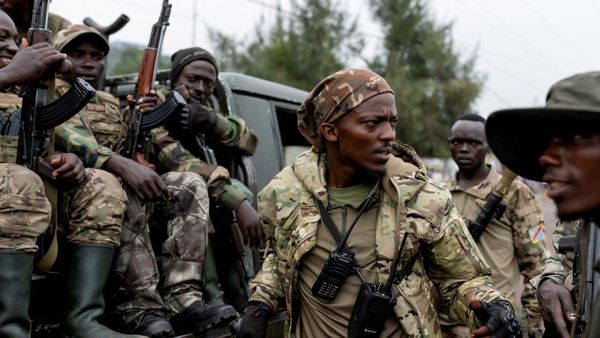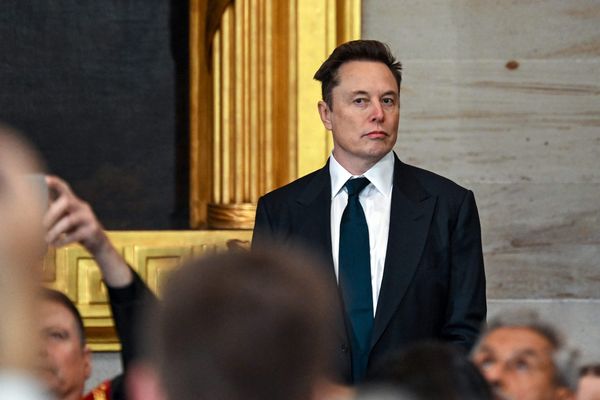
After a deceptively intriguing election night, in which early counting offered the hint of a dramatic upset, Saturday’s result in Queensland played broadly to script in delivering a Liberal National Party majority built on a backlash against Labor in the state’s regions.
Steven Miles’ end-of-evening speech may not have been the most gracious specimen of the genre, but we can at least be thankful that he did not pretend to have been robbed of a deserved victory when tainted early and postal votes were added to the count, as Donald Trump did in similar circumstances in 2020.
The silver lining for Labor is that the scale of the defeat was well short of what confronted it mid-year when a cluster of polls showed David Crisafulli and the LNP leading by around 57-43 on two-party preferred.
By the end of the campaign, the polls had narrowed to around 53-47 — respectably close to a final result that should land at around 54-46 when the dust settles.
While this was undoubtedly a less-than-brilliant result for Labor, at least its elected members won’t be able to travel to Parliament in a shared Tarago, as was the case when the party was last evicted from office in 2012.
Also not borne out was my own suggestion, made in the wake of Labor’s substantially worse result in the Northern Territory in August, that Miles would spend election night sweating over his own seat.
It thus seems clear that a few advantageous things must have happened in the months before the day of reckoning — some of which may even have federal implications, which pundits are generally too eager to ascribe to state results.
Particularly surprising was the emergence of abortion as an issue — though perhaps it shouldn’t have been, given the evident infectiousness of US political trends.
Cameron Milner, a former Labor state secretary who now supplements his lobbying income by attacking the party from the right in the Murdoch press, complained on Friday of the “vile” fashion in which it had exploited the issue. This rather overlooked the fact that its emergence was entirely the doing of its opponents. Rob Katter placed the issue on the agenda by declaring he would introduce a bill in the next Parliament to unwind the liberalising reforms passed in 2018, and LNP candidates kept it there by indicating their support.
This presented David Crisafulli with a brush fire he could not readily extinguish, given the party’s formal position of allowing a conscience vote on the issue (not that this had prevented the three LNP members who supported the 2018 reforms having their preselections threatened). With the weight of public opinion on Labor’s side, it would have been a strange political outfit indeed that did not seek to exploit the advantage.
For the federal Coalition, the issue was an instructive pointer to the trouble that can be caused by its more doctrinaire element, which is increasingly ascendant at the level of the party membership.
Another pleasant surprise for Labor was the benign attitude of the state’s monopoly Murdoch newspaper.
Normally the Coalition can rely on The Courier-Mail to complement its campaigns with a parade of anti-Labor hit pieces, but this time its front pages included favourable splashes on a number of Labor policy announcements and a flattering photo of the now former premier pumping iron a week out from the big day.
Nor was Crisafulli spared the blowtorch over his party’s disunity on abortion and the evasiveness entailed by his small-target strategy.
For Labor’s part, the federal party can take encouragement from the apparent success of splashy initiatives on public transport fares and free school lunches in giving it something to campaign on, notwithstanding the unhelpful message the former sent to already alienated regional voters.
Conversely, it was a disappointing night for the minor parties: One Nation emerged empty-handed, talk of a sweep through North Queensland by Katter’s Australian Party proved overhyped, and the Greens dropped one of their two seats after going into the campaign with high hopes of repeating their extraordinary federal successes from 2022.
None of this should be overstated, however. The combined major party vote continues to fall, however slightly on this particular occasion, and the Greens would likely have retained South Brisbane if the LNP’s how-to-vote card had recommended that Labor be put last, as it did in 2020.
The South Brisbane result was another sign of the times, in that Labor held up reasonably well in inner urban areas while collapsing further afield.
The party’s eviction from Townsville, Rockhampton and most of the state’s far north is of a piece with federal trends in Herbert and Capricornia, where the party may now be shut out for good after historically being competitive or better.
By contrast, Labor went untroubled in the traditional suburban bellwethers of Mansfield and Mount Ommaney, offering at least a glimmer of hope that it can yet gain federal seats in Brisbane that held out against the tide in 2022.
Is the Queensland result a sign of things to come for federal ALP? Let us know your thoughts by writing to letters@crikey.com.au. Please include your full name to be considered for publication. We reserve the right to edit for length and clarity.







